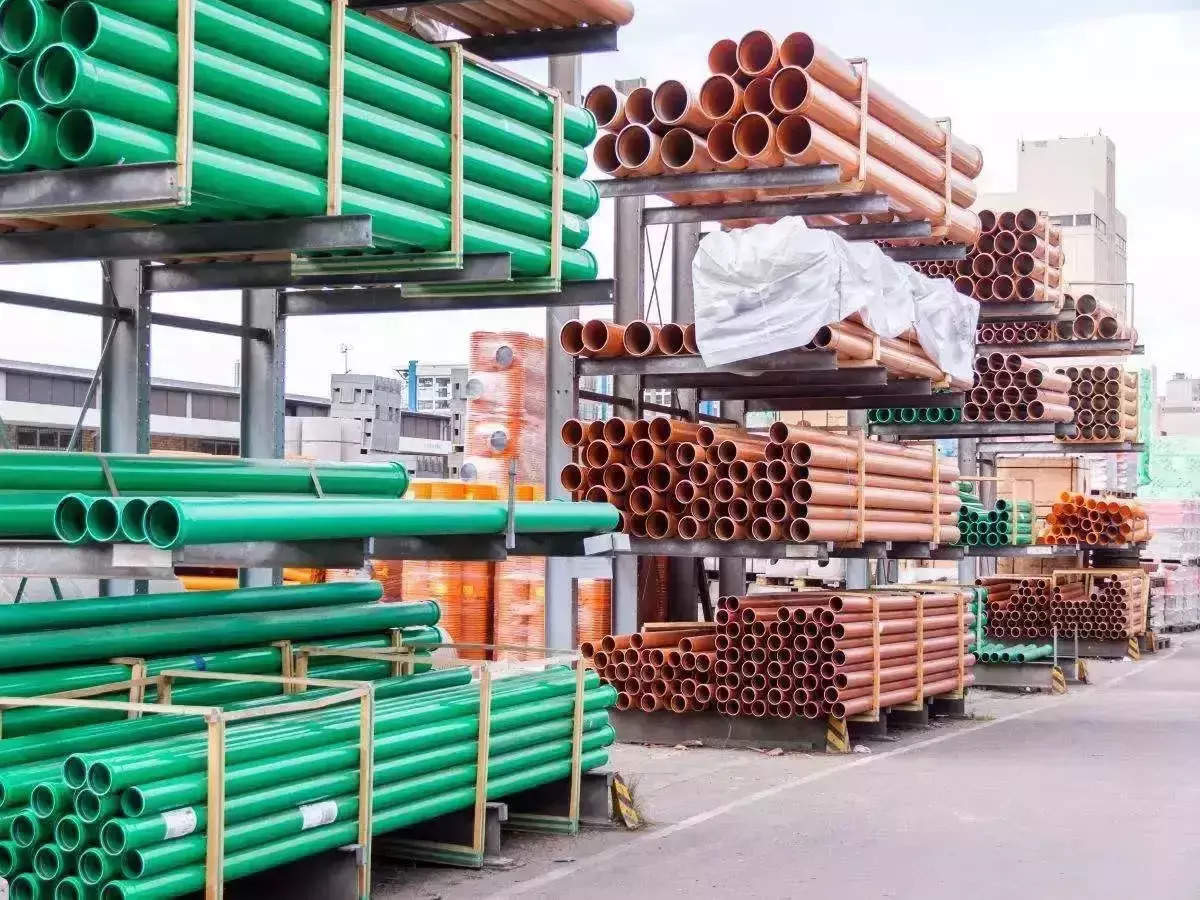
Polyvinyl Chloride (PVC), in its suspension resin form, is indispensable across key industries—from agriculture and healthcare to construction. According to research by C-DEP.org, PVC supports industries that collectively contribute to 29% of India’s GDP, underscoring its critical role in the economy.
PVC’s diverse applications include the manufacturing of pipes, profiles, films, electrical insulation, and medical devices. Its importance extends beyond industrial use, playing a crucial role in consumer goods, including food packaging and essential medical products like blood bags and medical tubing.
As a material that enables both industrial growth and consumer well-being, PVC remains a cornerstone of India’s development and economic progress.
Given the widespread applications, the quality of PVC suspension resin must meet high standards to ensure consumer safety and reliability. Low quality PVC input materials can lead to subpar downstream products in applications like pipes and fittings, calling for frequent replacements and increasing overall maintenance costs.
In critical sectors such as healthcare and electrical applications, the use of substandard PVC can pose severe safety risks. According to the Vinyl Institute, around 25% of all plastic-based medical devices rely on PVC, making it indispensable for medical tubing, blood bank pouches, and tablet packaging. Any compromise in quality directly jeopardizes public health and consumer safety.
A major concern with substandard PVC, often dumped by countries like China, is its Residual Vinyl Chloride Monomer (RVCM) content. RVCM, a chemical residue left during the PVC manufacturing process, can range between 5-15 PPM in low-quality imports.
High levels of RVCM are carcinogenic, posing significant health risks, including long-term complications such as cancer. This makes the presence of substandard PVC in critical applications particularly dangerous, underscoring the urgent need for stringent quality controls to safeguard public health.
Beyond safety, substandard PVC is one of the most environmentally damaging plastics as the production and disposal release toxic chlorine-based chemicals, including dioxins, which contaminate water and air and exacerbate climate change. These pollutants further compound the public health challenges, making it critical to regulate the quality of PVC imports.
To combat these issues, the introduction of a Quality Control Order (QCO) for PVC suspension resin is essential. A QCO mandates compliance with predefined quality standards, ensuring that all PVC, whether domestically produced or imported, is certified before it can enter the market. For PVC suspension resin, this regulatory measure will guarantee consistency, reliability, and safety across the supply chain, safeguarding industries and consumers.
The Ministry of Chemicals and Fertilizers has recognized the importance of this initiative and announced a Quality Control Order (QCO) for PVC suspension resin on 24th February 2024, with the original implementation date set for August 2024. However, enforcement has now been delayed and pushed to 24th December 2024. This delay has allowed substandard PVC imports from China to flood the Indian market, compromising consumer safety and harming the domestic industry.
India’s recent experience with the steel industry provides for a relevant case study to understand the importance of QCO for quality assurance. Before the implementation of a QCO on steel, substandard imports, particularly from China, flooded the Indian market.
Although the domestic steel industry consistently adhered to stringent quality standards, low-quality steel imports from China disrupted the Indian market. These imports not only dumped substandard products but also fuelled unfair competitive practices by undercutting prices threatening the survival of domestic industries.
The imposition of a QCO on steel in 2023, effectively curbed this problem by ensuring all foreign imports met strict quality standards. This regulatory intervention helped restrict substandard dumping, safeguarding the domestic industry from unfair trade practices.
A similar approach can be adopted to tackle substandard imports of PVC suspension resin. This would help eliminate the dumping of substandard PVC, safeguard consumer safety in critical sectors, and create a level playing field for domestic manufacturers who comply with Bureau of Indian Standards (BIS) norms.
C-DEP.org’s research found that India’s domestic PVC manufactures, along with globally licensed suppliers, can meet roughly over 130% of the country’s demand with BIS-compliant, high-quality PVC resin, projected to rise 265% after additional certifications.
Despite this surplus of quality supply, delays in enforcing BIS standards have allowed China to dump substandard PVC into the Indian market, with Residual Vinyl Chloride Monomer (RVCM) content of 5-15 PPM, far exceeding the BIS limit of 2 PPM. This regulatory gap not only compromises consumer safety but also creates unfair competition in the ecosystem.
While the introduction of QCOs, represents a progressive step towards ensuring quality and safety, certain procedural and administrative hurdles have been acting as bottlenecks when it comes to effective implementation. This calls for a holistic approach in planning the inspection and compliance checks.
There is a need to further strengthen the efficiency of inspection activities through a more structured and coordinated approach. For instance, in cases where multiple officials visit different plants for the same applicant company highlight an opportunity to streamline efforts and reduce redundancy.
A more structured system could help maximize resource utilization and improve coordination between agencies, especially when resources are already striving to uphold the guidelines by the domestic industry, especially the importers and traders.
Additionally, enhancing communication between implementing agencies and companies undergoing the licensing process can improve operational efficiency. There is a need to address challenges like visa delays for international inspections through better coordination with relevant authorities. Streamlining this process would help expedite certification timelines and ensure more effective adherence to CPCB guidelines.
By focusing on these areas, inspection processes can be made more robust and targeted, ensuring compliance while optimizing available resources.
The introduction of a QCO for PVC suspension resin is a critical and long-overdue step to ensure the quality, safety, and environmental compliance of this indispensable material. However, the delay in enforcement creates a dangerous window for foreign exporters, particularly from China, to aggressively dump substandard PVC into the Indian market.
This not only jeopardizes consumer safety—with dangerously high RVCM content exceeding the BIS limit—but also undermines the efforts of domestic manufacturers who have invested heavily to adhere to stringent quality standards.
India’s successful imposition of a QCO on steel provides a proven roadmap to address similar challenges. Swift implementation of the PVC QCO, coupled with a more structured and coordinated approach to inspections and compliance, can effectively curb the influx of substandard imports.
By eliminating regulatory bottlenecks and ensuring timely enforcement, India can protect public health, support domestic industry, and create a fair and competitive market—a necessary step to safeguard its economic and social well-being.
(The authors are part of Centre for Digital Economy Policy; Views are personal)


